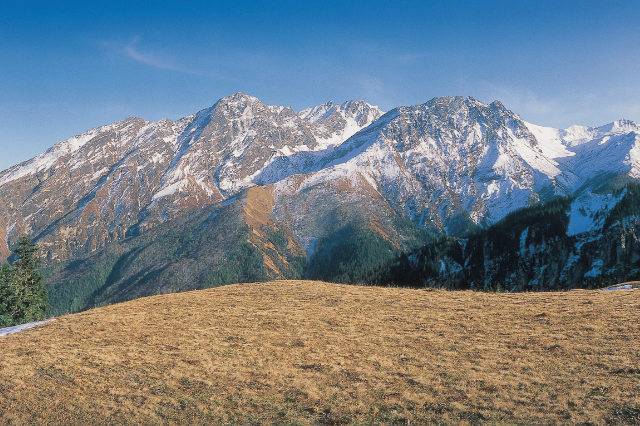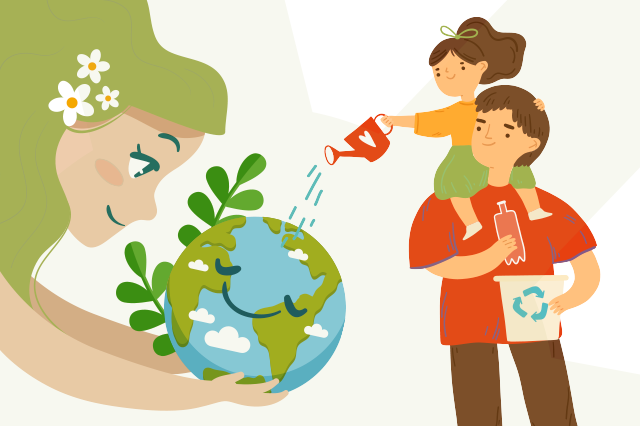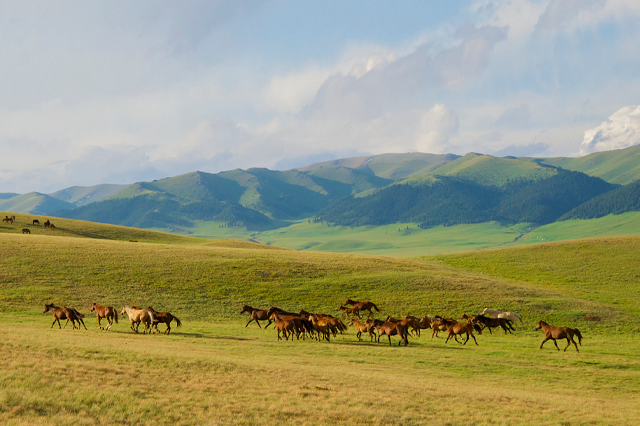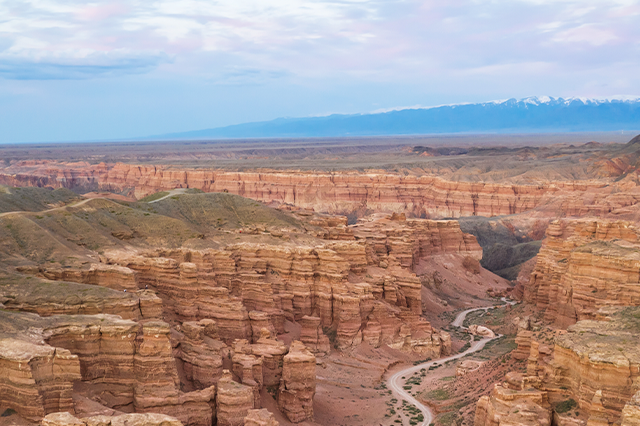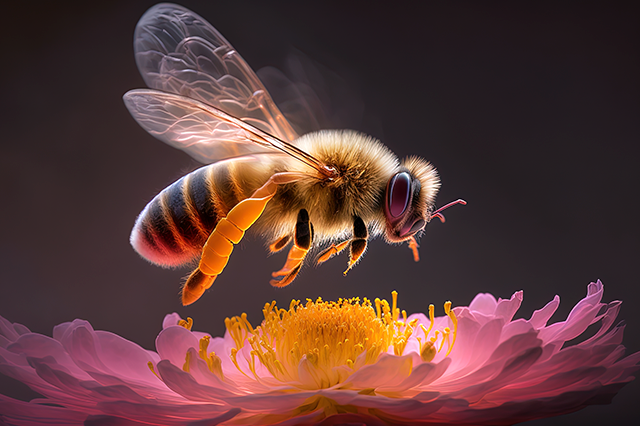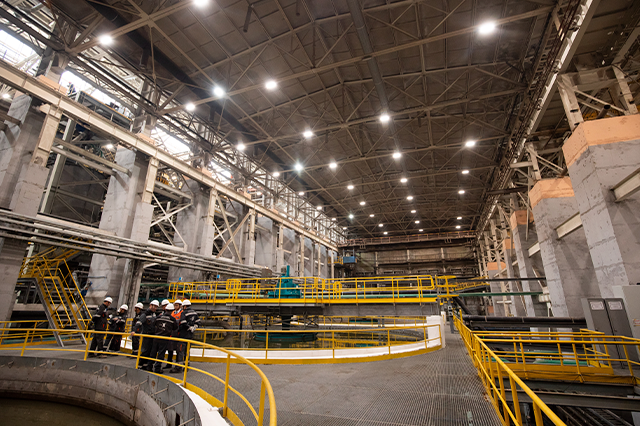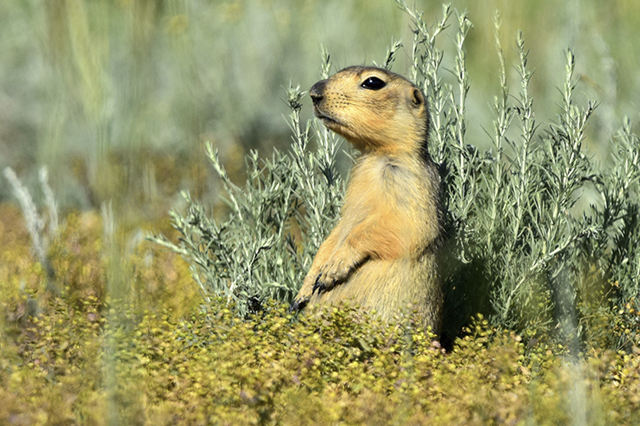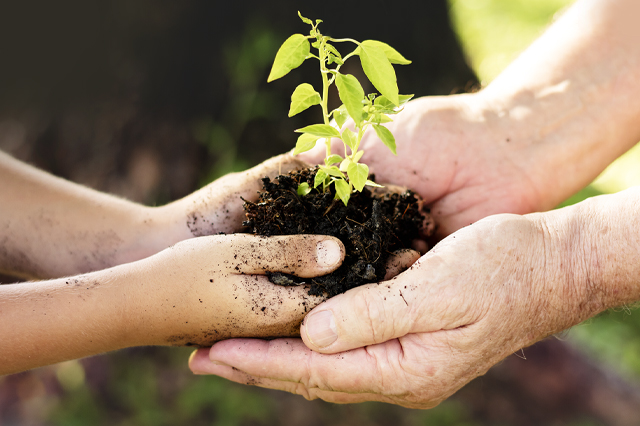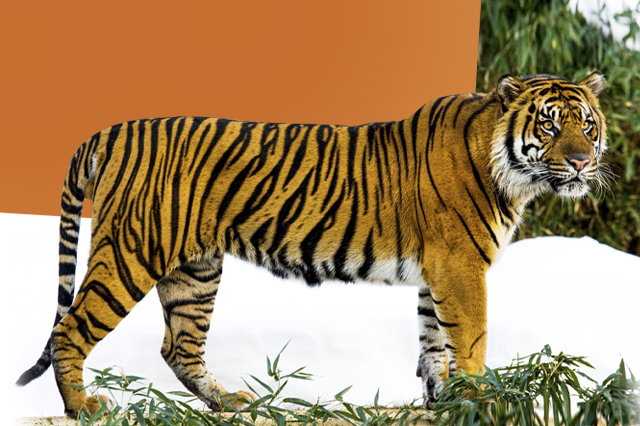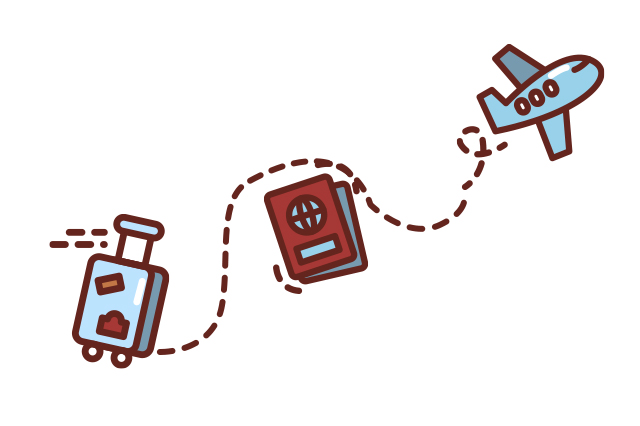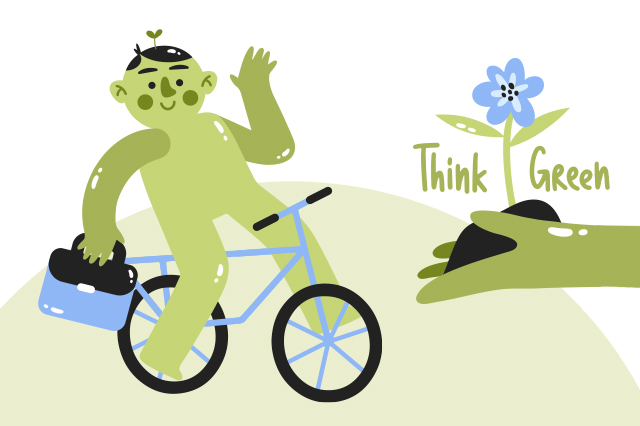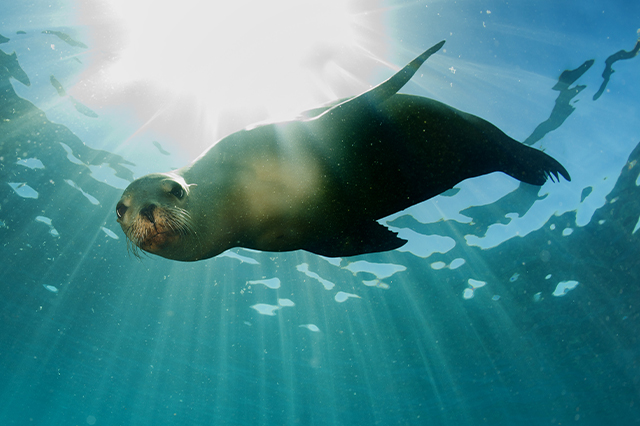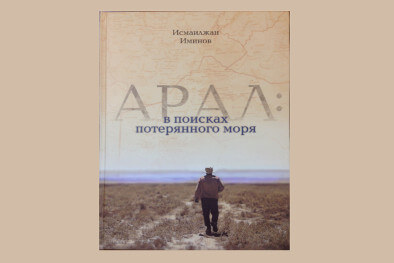In this article, we invite you to an extraordinary expedition into the green expanses of the Almaty Zoo under the guidance of its most experienced manager - the head of the primate department. Sholpan Abdibekova has been working as an employee of the zoo for almost 30 years, epitomizing the living history of the Almaty Zoo's commitment to wildlife conservation. Her work is marked by a deep connection to the primates she cares for and a unique perspective on the natural world and Kazakhstan's role in its conservation.
You have been working at the zoo for many years. Please tell us how your journey at Almaty Zoo began and what inspires you to continue this work daily.
I have been working at the Almaty Zoo since 1995. I have been there since I graduated from Almaty Veterinary University. With a diploma in my hands, walking through the streets of the city with thoughts of where there are jobs, I came across the message "need staff" at the door of the zoo located on Ormanova Street. To find out more details, I went inside. The moment I entered, I was asked about my profession. I answered that I was a veterinarian. I was told that to work as a veterinarian, you must answer some questions. So, the deputy director, the chief veterinarian, and the director began asking questions and administering the exam. Now, I remember answering the questions from the beginning to the end and breaking into a cold sweat with thoughts of whether I would get a job.
In my first year, I worked as a veterinarian in the veterinary department. In those days, my job was exciting. I worked not only with monkeys but with all the animals in the zoo. The most exciting thing then was the experience I got from Suyundik Tlepovich, the chief veterinarian, who was my teacher.
He would give me a notebook and pen, and I would write down the names of all the animals going through the zoo in Kazakh, Russian, and Latin. When there were losses, it was primarily due to health problems or various injuries. We would take the book "Pathanatomy" during autopsies and read it aloud. In this way, we could visualize what was described in the same book with our own eyes. Thus, thanks to Suyundik Tlepovoch, we gained experience.
When we studied at the university, we analyzed only significant animal husbandry, small animal husbandry, and pig breeding. There were no exotic animals like those in the zoo during our internship. Therefore, we gained all the experience and knowledge by coming to work.
Three years later, I was sent to the Department of Primates. At first, it was tough for me when I was transferred to this section. As the head, I learned a lot from fellow workers and ordinary workers who worked here. Although I supervised the work, they were also specialists. Therefore, when working in the zoo, one cannot compare that one has an education and one does not have a diploma. The experience we get from each other, whether just an employee or a keeper, is excellent. So, to everyone who works here, I would be deeply grateful. Their knowledge is deeply rooted in good direct relationships in their daily work.
When I joined the primate department in 1998, the Green Monkey had ten babies. On the 10th, she was tired and probably had no milk. For this reason, she stopped feeding the baby. Three days later, the baby could barely move, and its head was sagging off. We saw no solution but to take him in our arms and feed him. We gave the baby the name Ram. He was very close to us - we gave him milk and food, and he went to bed and woke up with us. A year later, I went on another annual vacation. It was springtime. The window was open, but we had yet to go outside. Back then, I had dark hair and glasses, and I sneezed a lot because of allergies. In those days, Ram must have missed me a lot. Someone sneezed a lot at one point, and Ram, who thought it was me, jumped out of the window and hugged that person. And when he realized it wasn't me, looking at his face, he went back inside.
Monkeys feel everything and will respond to you like you treat them.
It's not just me; everyone who works at the zoo is rushed until they walk through the door. Wondering what's going on, whether the cubs have been born, who's the first to see when they come to work. Our department has a tradition that whoever considers the baby delivered first will give it a name. The name should be short and no longer than four letters. By spring, everyone wants to see and know what's going on in the wards' lives.
Of the human-like monkey species, we have been keeping chimpanzees at Monkeys since 2001. When our chimpanzee had his first baby, we were very prepared. That year, the winter was very harsh. We were all getting ready and wanted to see who was born. The female came out and brought the baby in front of me to show visually the sex just for me. When I thanked her, she proceeded to hug and kiss her baby.
It's also interesting that male great apes are becoming more aggressive. But you can also see that he's proud to have a child. So the father put his daughter on his back and looked around, saying with his gaze, "I have a child, and I am the father."
In this way, we preserve the species and increase the number of animals.
You are known for your warm relationship with primates. How are these special bonds formed? Do you have unique ways of socializing or caring for them?
Monkeys can sense what mood a person is coming in with.
We often have the wealthy keep monkeys and cheetahs in the house. For example, a gibbon was brought to us by a rich man. When the children of affluent families went away to study, the parents could no longer watch the monkey.
All the workers interested in seeing a monkey raised by a human were gathered in one row in the deputy director's office. I sat on a stool at the very edge. Everyone in the office had arrived and was eagerly waiting for Gibbon. Gibbon walked between everyone as soon as he entered and headed toward me. As he came over to me, he put his head under my neck and hugged me. Then, it was clear to everyone that he immediately sensed his mother-to-be. Those gathered were surprised: "he knows he will go to Sholpan."
Another interesting story is connected with a chimpanzee, which we took from the Botanical Zoo in Kazan. It turns out that a chimpanzee named Pasha lived there from birth until he was five years old. He had keepers, deputies, and a director who looked after him from a very early age. Pasha, however, was very fond of the deputy director. Upon meeting him, as I approached the aviary, Pasha reached out, hugged me, and kissed me. Seeing his reaction to me, the zoo workers who raised Pasha cried: "Not even 5 minutes later, he betrayed us". I told them: "Don't take offense at him. He feels who in the future will be his mom, who will take care of him".
Great apes have very high sensitivity. They get upset and take offense if you raise your voice or swear at them. The monkeys we grew from childhood can raise their hand and hold their palm against your mouth if you speak to them in a pitched voice. They can also sit on your head if you spoil them a lot. Here, it is necessary to be guided by the principle, as you bring up a human child, so it is required to bring up monkeys. After all, it is unknown how they will grow up and how ready they will be for life if we do not say what we can and can not and designate the rules and boundaries of behavior.
What features in care and interaction have you noticed between the different species of primates at the zoo?
Monkeys have different species: first, high, and lower. The higher category of monkeys includes excellent apes. Meanwhile, the more subordinate monkeys include little monkeys like the coliuchus, which live in Madagascar and South America. What distinguishes these monkeys from the higher apes, like the great apes like the great apes is that they hunted and ate them in nature.
Another feature is that in nature, monkeys can eat their cubs if they can't survive. And we give a second life in the zoo.
What are the main challenges and joys you experience in your daily work with primates?
We labor, dedicate our lives, and invest with our whole soul, so first, let them not get sick. May they multiply. Also, we always hope they can write and raise their children independently. If we forage for cubs, we hope his group will accept him again when we return him to the pack. At times like this, we get very excited and feel joy.
And when they are sick, it gets tough. We rejoice whenever they can be cured and brought back into the fold. Among monkeys, some diseases, such as cancer or blood diseases, are as tricky and incurable as in humans. We help until the last minute and be there for them if we know there is nothing more we can do. It's as if the monkeys realize they can't be reborn as humans, and these are their last days. You can read the sadness in their eyes and the realization that there is nothing we can do to help them. When you hold their hand, you can feel they ask for help. It can be excruciating at times like this.
Do you want to share any memorable moments or funny stories about your pups with our readers?
When we took in a green monkey cub, I was out of the ward one day, and a little while later, other staff members came in and said Ram was missing. After checking all the enclosures, we found Ram in the summer enclosure beside his parents. And his father, when he saw us, covered the hole in the feeder with his hands so that we couldn't get him out of there. And then, when I said to Ram, "Then you'll stay here," he followed me.
Monkey mothers don't give their babies to anyone, even if they can't feed and raise them themselves.
I have one gibbon. His grandfather, grandmother, father, and mother were hand-reared. They couldn't raise their first or second children but could already support their third and fourth. Because in her practice, she doesn't know how to nurse her cub. Gibbon, as much as she loved her baby, couldn't breastfeed, so we had to take and hand-feed the baby. Knowing that the mother would not give up her baby, we only took it away after putting her to sleep. Even through sleep, the mother would hold out her two hands, not wanting to give him up. After each feeding, we returned the baby to the mother. Today, he has a family of his own.
What amazes me is that people can leave their children on the street. Monkeys often have a higher mental capacity than humans. Whether monkeys can feed their baby or not, they will not leave it behind and give it away.
Foreign guests also come to our zoo. They familiarize themselves with the conditions created for the animals in our garden and express their gratitude. We take good care of the animals and observe the diet established worldwide. At the same time, some people think that the animals in the zoo are hungry. Therefore, we tell our guests that they should not feed them from their hands, as it can disturb the diet and negatively affect the health of the animals.
What are your views on the importance of conserving primates and their habitats? Are there any specific programs or initiatives you are involved in or inspired by?
We participate in the IPR (International Primate Rescue) program, implemented worldwide. The IP program works to conserve and reproduce endangered monkeys. Although we breed monkeys in our zoo as part of this program, we cannot release them into the wild. Further, the program coordinator tracks how and where the monkeys are released into the wild.
In addition, we know how many chimpanzees, gorillas, orangs, and other endangered monkeys there are on Earth right now. The main reason they are disappearing is, of course, us humans. We have not left them the forests in which they live. Because of these conditions in the world, to preserve a particular species of monkeys, we have to put them in zoos. At the same time, some public figures are calling for zoos to be closed. And they don't think about where animals that are rare in the wild and don't have a home should live.
How do you balance your demanding zoo work with your personal life?
My family loves the zoo. They participate with me in this work. When I stay late at work, they bring me food. My family keeps up with everything happening worldwide and discusses the most exciting programs. All zoo staff families have a direct connection to the zoo.
What advice would you give to young professionals aspiring to work with primates or in zoos?
I want to tell aspiring young professionals that nowadays, young people graduate and get their diplomas. They don't want to do some mediocre job, finding it suitable for ordinary workers but not for them. This is a mistake because, as human beings, we are all on the same level, and we should not look down on anyone. Most importantly, they empathize, and we feel the same way. Also, when studying at university, you don't get to work with such rare animals, and the workers have much to learn.
Any new professionals need to study, research, and learn a lot. This applies not only to those who want to work in the zoo, but also to young people who want to work in a sizeable animal-husbandry complex. And, of course, one should not be afraid of animals. One should not be squeamish.



